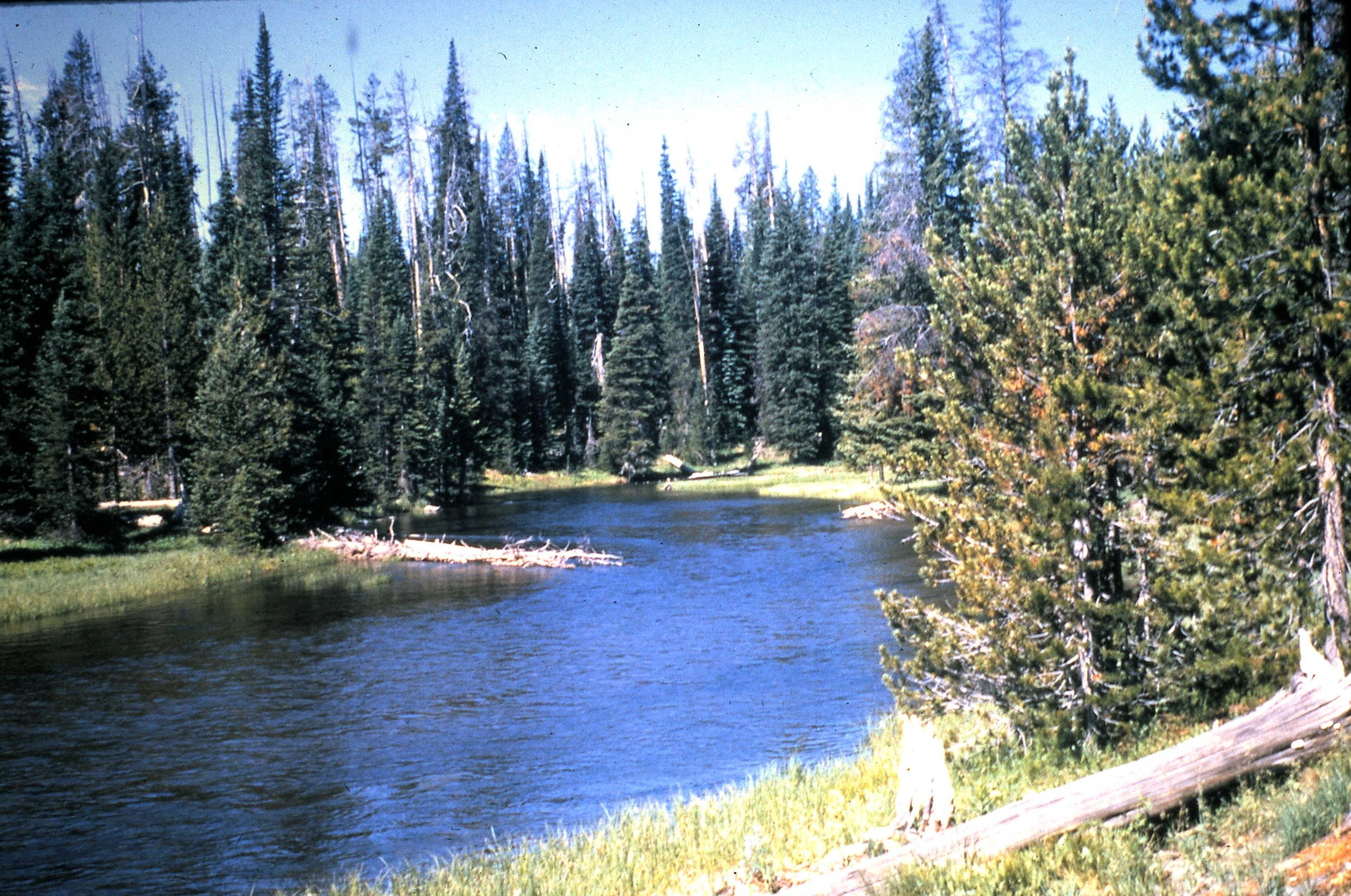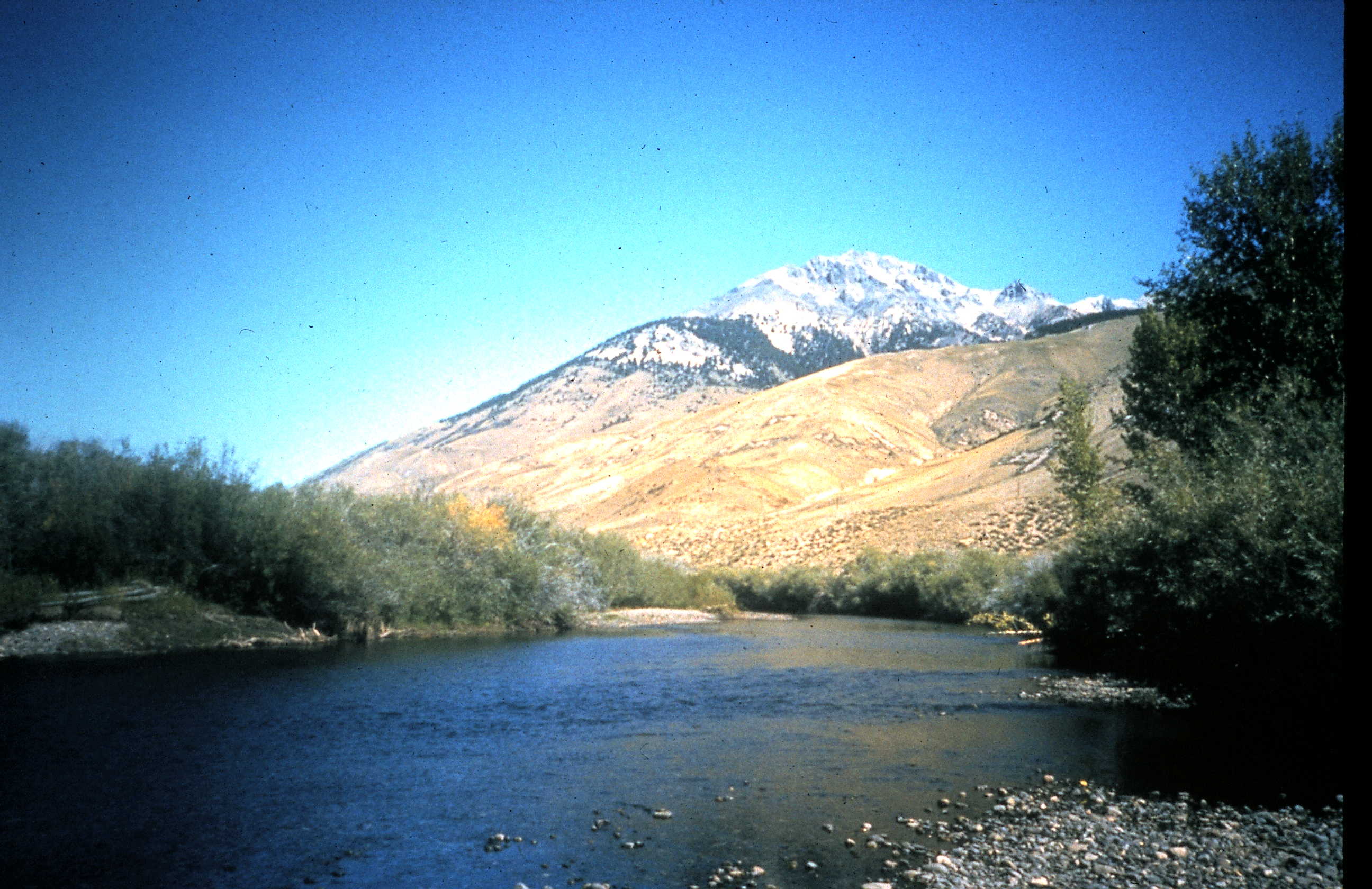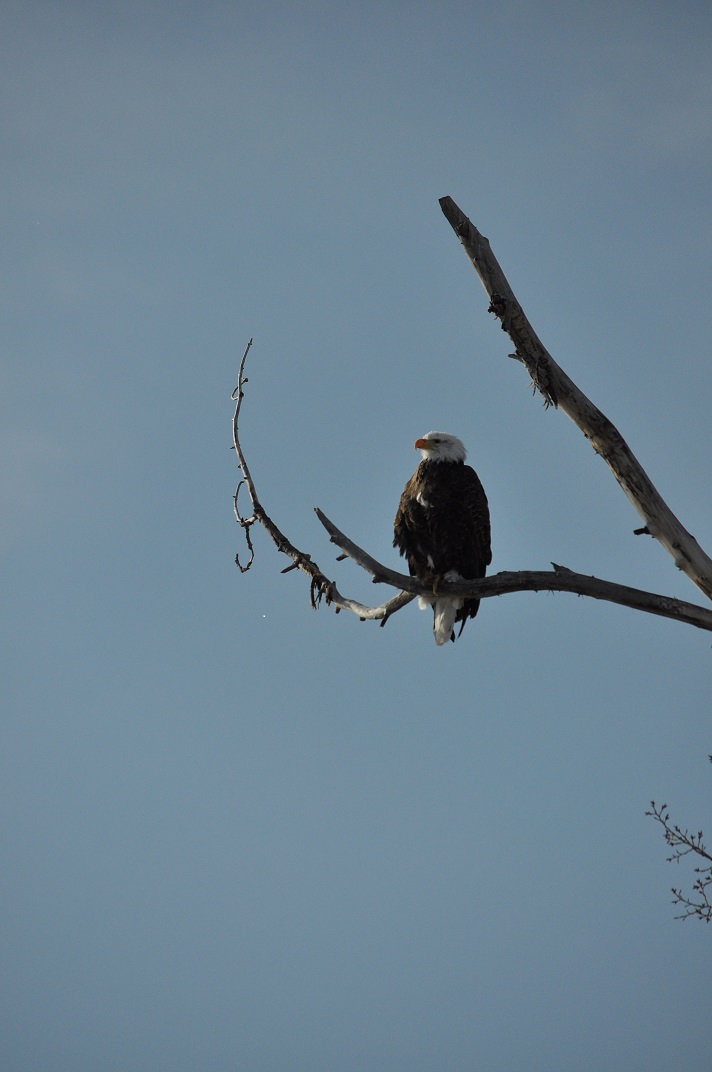The late summer mayfly activity peak is on going up and down the river. BWOs, mahogany duns, and tricos lead with respect to quantity and are accompanied by diminishing PMDs and speckled duns. Add a good number of terrestrial insects remaining streamside and a great time to be dry fly fishing here continues.
Below are excerpts from Dr. Rob Van Kirk’s analysis for today of Henry’s Fork drainage water status.
Headlines:
- Dry conditions continue, with only light precipitation forecast over the week.
- Diversion decreased yesterday on the lower Henry’s Fork, increasing stream flow there by around 20 cfs.
- At an average outflow of around 500 cfs, Island Park Reservoir dropped 205 ac-ft yesterday and is 41% full, compared with 46% full on average and 15% full in 2016.
Details:
Mean temperature yesterday was 1 degree F above average, and no precipitation was recorded. Updated precipitation data from SnoTel stations confirmed that water-year precipitation to date is 81% of average. With only 17 days remaining in the water year and no heavy precipitation in the forecast, precipitation for the water year will end up in the neighborhood of 80% of average. That will put 2021 somewhere in the range of 4th-7th driest since 1989. For reference, precipitation in 2016 was 88% of average. Temperatures over the remainder of the week are expected to stay around where they were yesterday. Precipitation is possible on Sunday and Monday, although amounts look light.
Diversion decreased by around 25 cfs yesterday, all of which occurred on the lower Henry’s Fork. Meanwhile, natural flow stayed roughly constant, although that in Fall River dropped by around 5 cfs from a small bump over the weekend resulting from rain on Friday night. The net result was an increase in stream flow of around 20 cfs on the lower Henry’s Fork. Otherwise, conditions in the lower watershed have been very stable for the past week.
All measures of water quality remain very good in all river reaches. Turbidity at Island Park Dam continues to decrease on both sides of the dam.
Rob Van Kirk, Ph.D.
Senior Scientist
Henry’s Fork Foundation
P.O. Box 550
Ashton, ID 83420
208-652-3567 OFFICE
208-881-3407 CELL
208-652-3568 FAX




